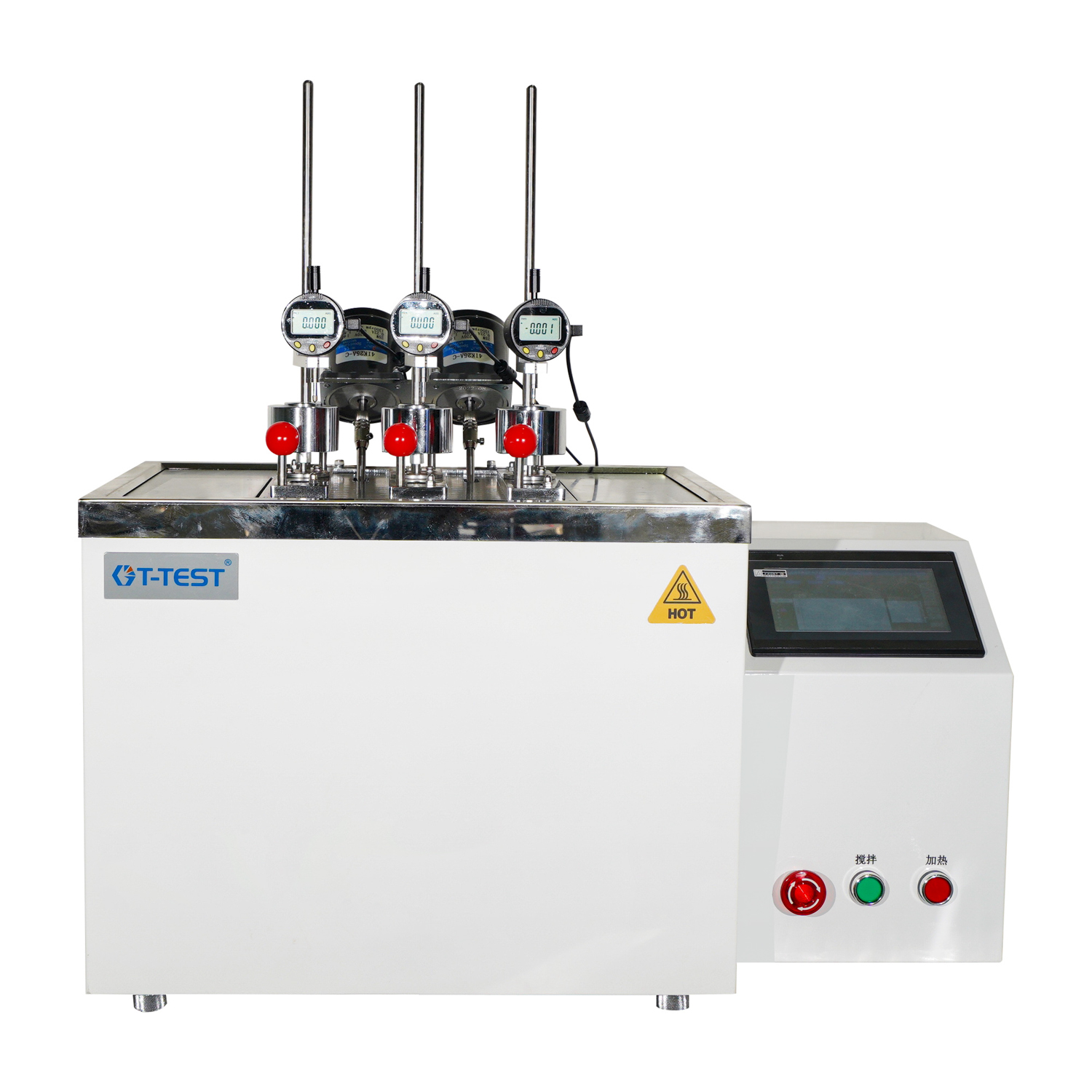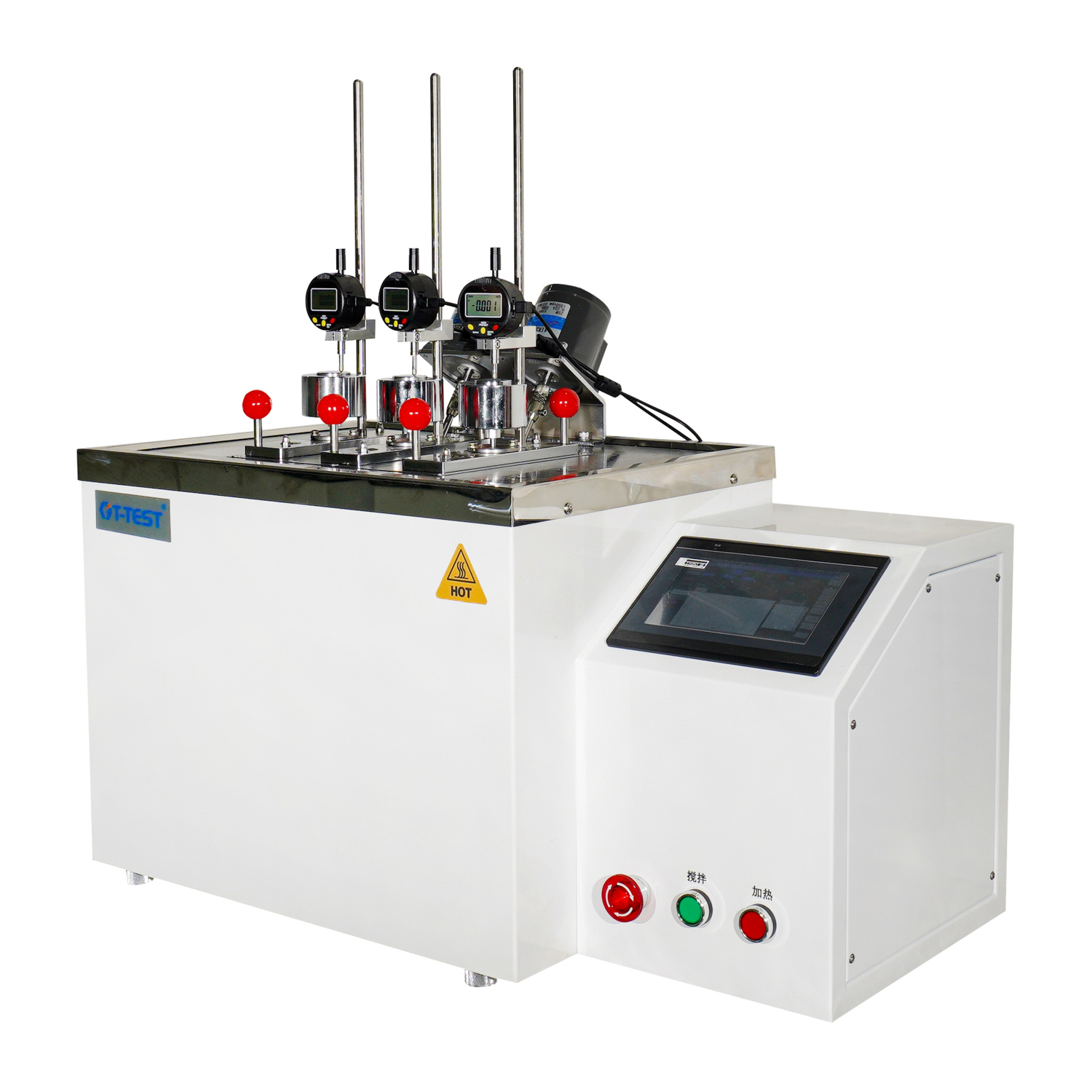Vicat & Heat Deflection Temperture Testing Equipment
Heat Deflection Temperature and Vicat Softening Point Temperature are important indicators of the stability and durability of polymer materials in high temperature environments.
GT-TEST HDT/Vicat tester can accurately measure and provide reliable datum to help you understand the heat deflection characteristics and softening point temperature of your material, it is applicable in the field of plastics processing, rubber products production or new materials development.
GT-TEST HDT/Vicat tester helps you better understand material properties and improve product quality and competitiveness,You will enjoy industry-leading technical support and after-sales service,we are committed to providing you with the best products and solutions.
Standards
l ISO 75
l ISO 306
l ASTM D 1525
l ASTM D 648
Application
The tester is used to determine the Vicat softening temperature and the heat deflection temperature under load for plastics and thermoplastics.
The attained heat resistance rate of plastic material is a widely required parameter for product characterization, for quality control and for evaluating the conformity to the previewed applications.
“HDT” test means
The test determines the temperature at which a specified deflection occurs when a standard test specimen is subjected to a bending stress, to produce one of the nominal surface stresses according to international standards.
This test is important for both quality control and research into plastics.
“VICAT” test means
The test determines the temperature at which a standard indenter penetrates 1mm into the surface of a test specimen under load.
It is used to establish the difference between many types of thermoplastic materials with regard to their softening properties.
The Vicat softening point temperature is a critical parameter for PVC pipe testing as it indicates the temperature at
which the PVC material begins to soften and lose its structural integrity. This is important for PVC pipes as they are
commonly used in applications where they are exposed to high temperatures, such as in hot water systems or
outdoor environments.
The Vicat testing machine is needed for testing PVC pipes because it allows for accurate and precise measurement
of the softening point temperature. This is done by heating a sample of the PVC material at a controlled rate until
it reaches a specific temperature, at which point a needle is used to measure the penetration of the material. This
provides a quantitative measurement of the softening point temperature, which is crucial for ensuring the quality
and performance of PVC pipes in various applications.
Overall, the Vicat softening point temperature and the Vicat testing machine are essential tools for evaluating the
thermal stability and performance of PVC pipes, helping to ensure their durability and reliability in use.
Features
Control mode: computer and application software
Motor-operated lifting platform
The designed volume ensures a very good thermal exchange
Enables to produce the graphs of deflection Vs Time or Temperature
Automatic recording the test results of Vicat /HDT temperatures
Adopting rapid cooling technology, it shortens the testing time and improves the working efficiency.
Adopting simple and easy-to-understand operation interface
Parameters
Number of stations | 3/4/6 |
Temperature measuring point | 1 |
Temperature range | RT to 300℃ |
Temperature ramps | 50℃/h, 120℃/h or others on request |
Deflection range | -1.00 to 9.00mm |
Deflection measuring instrument | Digital gauge with communication interface |
Test capability | HDT & VICAT |
Control way | Computer and application software |
Test graphs | Deflection or Penetration curves Vs Time or Temperature |
Span of specimen support (HDT) | 64 or 100mm |
HDT |
Flexural stress | Method A—1.8 Mpa Method B—0.45 Mpa Method C—8.0 Mpa |
Vicat |
VICAT mass | 10N and 50N |






























